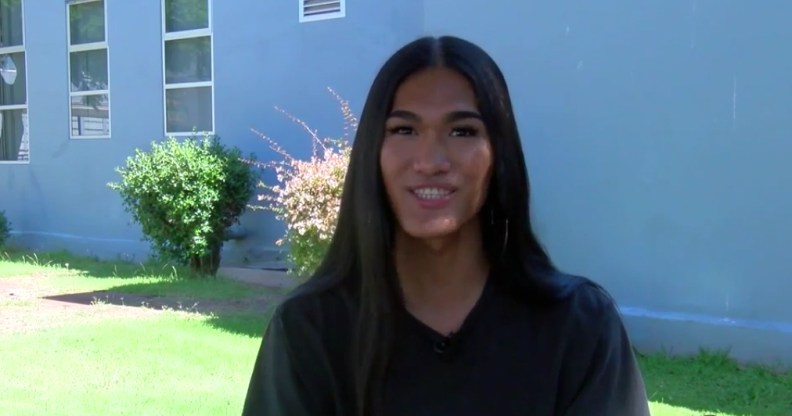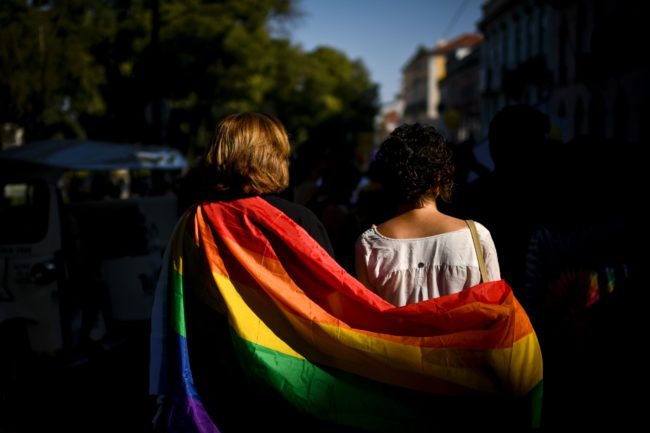Transgender teenager crowned homecoming queen at California high school

Cruz was crowned homecoming queen at Sweetwater Union High School (Screengrab/ABC)
A high school in California has crowned a transgender teenager their homecoming queen.
Karl Cruz, 18, was voted for by fellow students at the Sweetwater Union High School.
Speaking to ABC News, Cruz said: “Everyone started cheering for me. I didn’t really expect that from anyone.
“After the fireworks, I just started crying my eyes out.”
The school principal said she was proud of the school being a safe environment for LGBT+ students.
“I can’t say I was surprised. Every single student should be accepted for who they are. They’re all wonderful human beings that are here to learn,” Principal Maribel Gavin said.

More teenagers than we previously thought are transgender (PATRICIA DE MELO MOREIRA/AFP/Getty)
Earlier this year, a study found there are four times more transgender teenagers in the US than previously thought, according to an analysis of a 2016 survey of nearly 81,000 teens in Minnesota.
Nearly three percent of all 13 to 17-year-olds are trans or gender nonconforming, the results suggested.
It found that almost 2,200 identified as trans, which includes terms such as non-binary, gender nonconforming and genderfluid.
That works out at 2.7 percent of teens, around four times more than the 0.7 percent figure which a UCLA study found last year.
And Nic Rider, a University of Minnesota postdoctoral fellow who is the new study’s lead author, said that the results can be used to estimate numbers across the US.

Trans teenagers are at risk of poor mental health (Pexels)
“Diverse gender identities are more prevalent than people would expect,” Rider said.
Poor mental health is prevalent among transgender teens however, with one study finding more than half (51 percent) of trans male teenagers have attempted suicide in the past year.
The new study by researchers at the University of Arizona also found that more than four in 10 (42 percent) of non-binary adolescents and 30 percent of trans female teens had attempted suicide.
Overall, more than a quarter (28 percent) of teenagers questioning their gender identity had tried to take their own life.

